A series of stalls at Tan Binh market (Tan Binh district) closed down due to fear of being fined for selling goods without valid invoices - Photo: NHAT XUAN
While many small traders and business households strictly comply with regulations on issuing electronic invoices that directly connect data with tax authorities when selling goods, many small traders at some traditional markets, especially wholesale markets, have closed their stalls because there are still many problems that need guidance.
This is a reality we have recorded after the regulation requiring business households with revenue of 1 billion VND/year to use electronic invoices (E-invoices) generated from cash registers, directly connected to tax authorities, effective from June 1.
Don't know where to start?
At noon on June 4, Tuoi Tre 's observations at Tan Binh Market - one of the largest wholesale markets in Ho Chi Minh City - showed an unusually quiet atmosphere. Many stalls had their doors closed, and many rows of kiosks were deserted.
According to small traders, this situation is mainly due to the new regulations on electronic invoices, many people jokingly call it "new license" but they do not have enough strength to handle it!
Sitting in front of her stall that had temporarily stopped trading in the hot afternoon, Ms. NTL, a long-time wholesale clothing trader at Tan Binh market, said she had been "sleepless" for the past few days after being required to issue electronic invoices directly connected to tax authority data since June 1.
According to Ms. L., this is "almost impossible" due to the long-standing trading characteristics of traditional wholesale markets.
"Tan Binh market has thousands of stalls specializing in wholesale clothing, shoes, and accessories. The goods are mostly sourced from familiar sources and small factories. Some places still "sign the books" but do not have invoices," said Ms. L., adding that the difficulty is that inventory is piling up, and then there are debts... Many sources take goods all year long and only pay at the end of the year.
"When selling clothes, exchanging and returning is normal, so when returning goods, how do we handle invoices?", Ms. L. expressed concern.
Pointing to the rows of empty kiosks, Ms. L. said: "Because they don't know where to start, many people are forced to temporarily stop doing business."
Previously, according to Ms. L., some traders at this market were invited by the tax authority to attend training, but most of the content presented by banks and software companies was technical, while the traders - mostly middle-aged - wanted specific instructions for real-life situations, but no one stood up to explain.
Ms. L. affirmed that the traders did not oppose the policy but simply "struggled to not know how to implement it properly."
"Recently, there have been many surprise inspections, so we, the traders, are even more worried, confused, and afraid of being fined for not completing the procedures, so we have to stop selling and wait for the situation to improve. Anyway, the market is still sluggish and difficult, so even if we open, sales will be slow," Ms. L. added.
Many small traders are still "confused about the new process"
Ms. Kim Hue, a souvenir vendor at Ben Thanh Market, said she had received notice from the market management board and also heard information from the media about the regulations on applying electronic invoices but still did not know how to specifically implement them.
Therefore, many traders at this market still sell goods in the old way: payment by cash or personal transfer, without issuing invoices.
According to Ms. Hue, most of the small traders here source their handicrafts from small workshops, without company names and most of them do not have valid input invoices.
"Many small workshops do it by hand, making money by labor, the original price is only a few tens of thousands of dong, so there is no invoice," Ms. Hue said, adding that small traders need more specific instructions on how to declare costs and get input invoices.
Meanwhile, despite proactively converting to adapt early, Mr. Lam Phuong Toan, owner of Hana flower shop (Go Vap district), said that many businesses are very concerned about input invoices.
According to Mr. Toan, many friends and acquaintances in the industry are confused due to the lack of specific information about the implementation process.
"Many people do not know when to issue invoices, where to issue them, how to calculate output...", Mr. Toan said, at the same time suggesting that tax authorities set up hotlines to support people in a timely manner, avoiding violations due to lack of knowledge. Because from a free sales process to a strict legal process is a big change.
"Employees must be trained from scratch, step by step, hand-holding and guidance," he shared.
Many businesses also support the trend of modernizing the tax system but request clearer guidance and closer support from the authorities. The owner of a grocery store in Phu Nhuan said he hired an accounting service to handle invoices and books to avoid the risk of being fined if there are any errors.
Small businesses need guidance and want a roadmap to apply?
Ms. Le Thi Nhi, who sells clothes at Tan Binh market, affirmed: "It's not that we don't want to follow the rules, but... we don't know." Because the trading environment at wholesale markets often operates on the principle of "trust is capital."
"Buying and selling is usually not paid for at once. Customers often take the goods in advance, sometimes even taking the goods for a whole year before paying," said Ms. Nhi.
Meanwhile, according to small traders, the electronic invoice software requires invoices to be issued immediately upon sale, with the full amount.
"If a customer returns an item, I don't know how to correct the invoice. These softwares can't handle that situation," said Nhi, adding that no tax officer has come to the place to give specific instructions to the merchants.
Instead, only employees of software companies like Misa , Viettel... come to sell machines and applications.
"After listening to their introduction, we became even more confused. After downloading the app and leaving it there, no one dared to use it officially because they didn't know how to use it, and if they made a mistake, they were afraid they would be fined," Nhi added.
According to the traders at this market, for a long time they have been importing goods from small garment factories and workshops, delivering them by hand and recording them in books. Now if they are forced to have legal invoices, many sources of goods cannot be legalized, leading to many places stopping importing and selling.
"Not everyone has a tax code, not every factory can issue invoices. I also don't dare import without clear documents for fear of being fined," Nhi shared.
Meanwhile, Ms. Nguyen Thi Tuyet, a clothing trader, hopes that the authorities will provide more specific and dedicated guidance, because most of the traders here are elderly and have difficulty grasping all the information about taxes and techniques.
According to Ms. Tuyet, if they want traders to do it right, the authorities need to guide them step by step, and cannot "learn today and do it tomorrow" with people who have been used to writing by hand for decades like most traders in traditional markets.
"I don't have the machines, I'm not good at technology. No one showed me how to do it, but I was forced to do it right away, so many people temporarily closed their shops. I accept the tax, I'm willing to do it. But there must be a roadmap," said Ms. Tuyet.
Support HĐĐT but need more specific guidance
Many retailers said they support issuing electronic invoices when selling goods but need more specific guidance, especially in cases of returning goods, selling goods but collecting money in advance... - Photo: NHAT XUAN
Having been selling shoes at An Dong Market (District 5) for many years, Ms. Ngan said she strongly supports this new policy to create fairness in business. When applying electronic invoices, people with high revenue and profit have to pay more taxes, not "equalizing" like the lump-sum tax in the past.
"If the lump-sum tax is applied, I will pay 4 million VND per month while many people with a revenue of 4-5 billion VND per year, many times higher than my revenue, pay the same amount," said Ms. Ngan.
However, according to Ms. Ngan, the application of electronic invoices is still inadequate because the imported goods are mostly from small-scale home-based garment factories, so there are almost no invoices or documents. This is also the reason why many small traders do not dare to import a lot of goods.
Selling clothing at this market, Mr. L. said that most of the traders at the market have difficulty requesting invoices and documents from suppliers.
"Therefore, I have not dared to import goods in the past few days, afraid that the authorities will fine me for not having invoices and documents," Mr. L. said, adding that if clear instructions were given and difficulties were removed, many businesses would feel secure and speed up the application of this new regulation.
Speaking with Tuoi Tre , Mr. Nguyen Nhu, deputy director of Thu Duc Agricultural Products Wholesale Market (Thu Duc City), said that the number of stalls with annual revenue of 1 billion VND at the market is quite large, so many stalls are subject to applying electronic invoices connected to tax authority data.
However, there are difficulties and shortcomings in applying new tax regulations.
Specifically, according to Mr. Nhu, agricultural products are purchased from farmers with many small orders of low value, so it is not easy for traders at the market to have input invoices and documents.
"The stores buy and process and sell, the input and output are clear. As for the wholesale market, in many cases it is not a straight purchase and sale, but just an intermediary between the buyer and seller, taking a small profit margin, so we don't know how to calculate the "definition of revenue" appropriately," said a trader at this market.
Similarly, some traders at Binh Dien wholesale market and Hoc Mon wholesale market (HCMC) also said that although they are subject to electronic invoices, they are still confused, the most problematic of which is the regulations on invoices and documents for imported goods. Therefore, many traders do not dare to import goods, affecting their business.
NHAT XUAN - NGUYEN TRI
Source: https://tuoitre.vn/xuat-hoa-don-dien-tu-khi-ban-hang-nhieu-tieu-thuong-dong-sap-cho-huong-dan-20250604223610325.htm


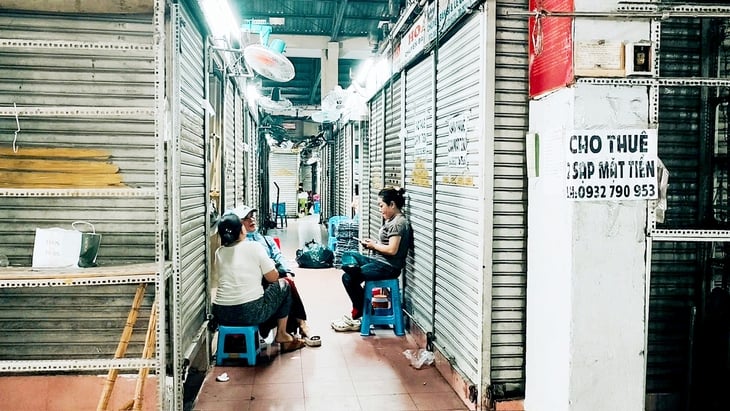












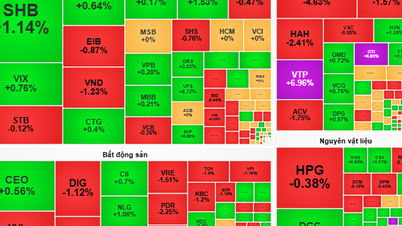

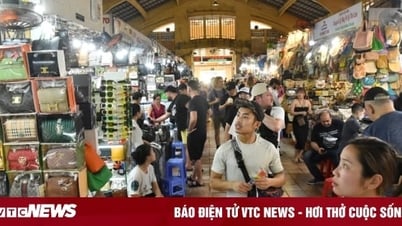









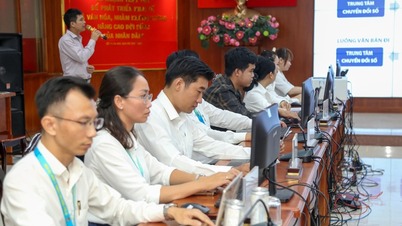




















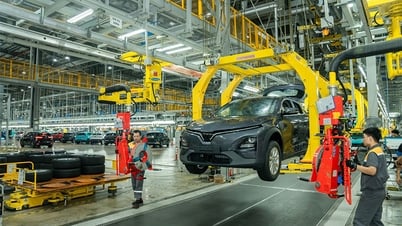

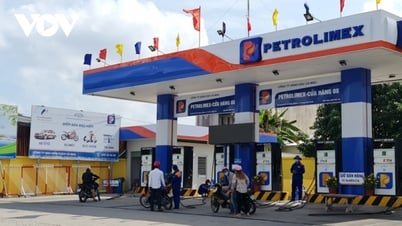

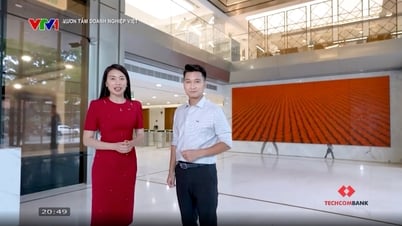
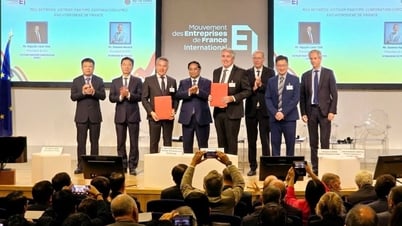


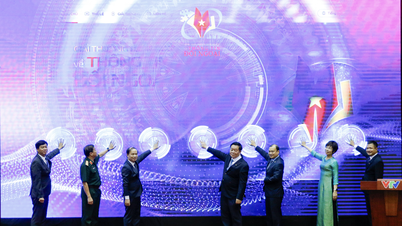


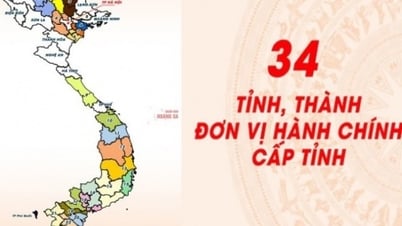













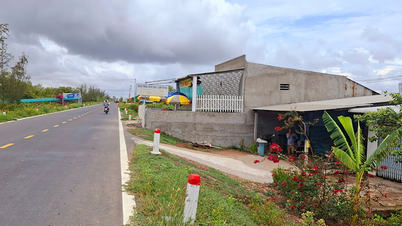



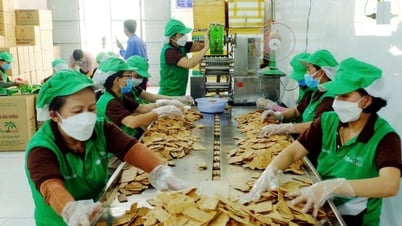



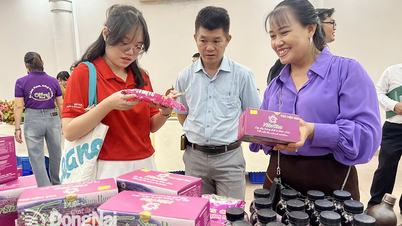



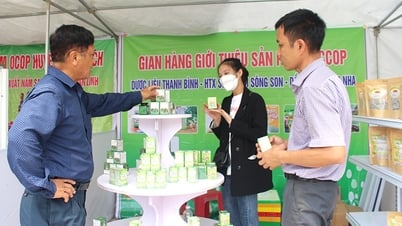








Comment (0)